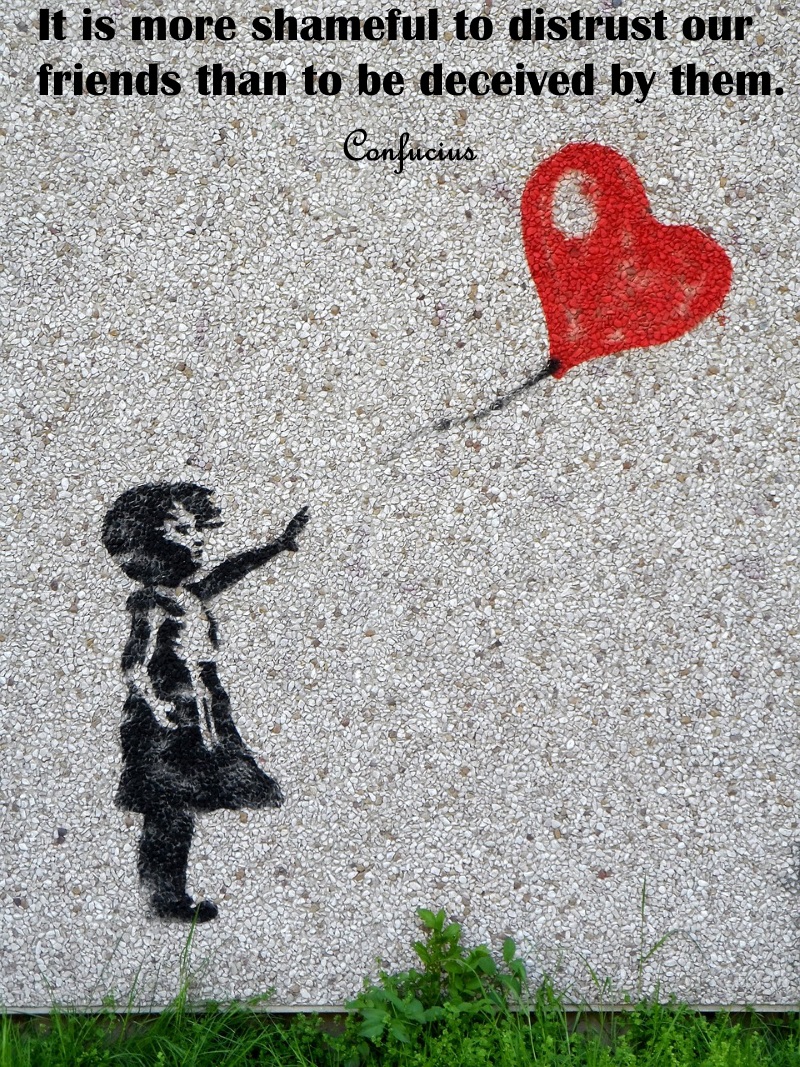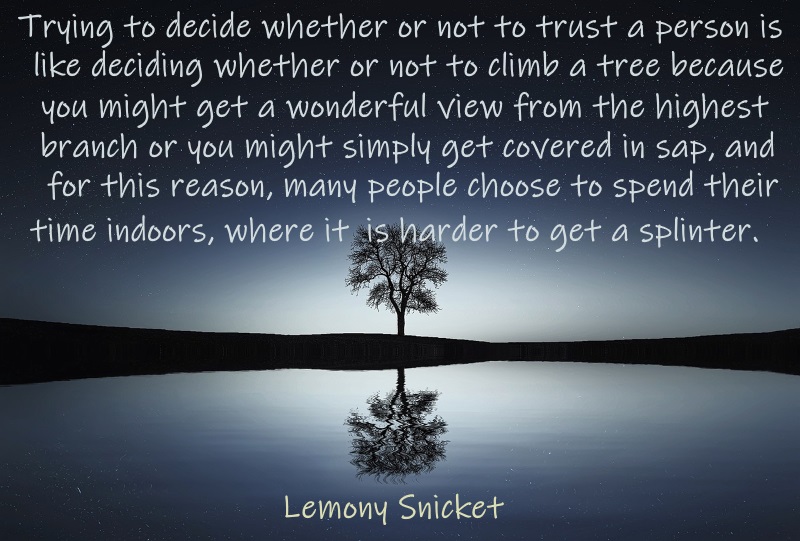
In a previous blog, I started discussing the results of a study we conducted at Queendom where we compared the differences between the following groups:
- People who distrust everyone
- People who trust others conditionally
- People who are willing to trust others completely
What we discovered in the first half of our study was that our trusting group was more confident, likable, and optimistic, which begged the question: Are they also more naive, foolhardy, and easy to deceive and take advantage of? Well, here’s what I discovered:
Self-disclosure
(Note: Scores range on a scale from 0 to 100)
- Score for the Distrustful Group: 35
- Score for the Conditional Trust Group: 53
- Score for the Trustful Group: 60
On the one hand, it comes as no surprise that the Trustful Group are more comfortable opening up to people, but take a closer look at their score: It’s in the mid-range. So while trusting people are willing to share their thoughts and feelings, it’s not going to be a juicy tell-all. They’re open and comfortable with vulnerability, but don’t expect them to spill their deepest secrets. This group knows not to kiss and tell.
Resilience
- Score for the Distrustful Group: 56
- Score for the Conditional Trust Group: 67
- Score for the Trustful Group: 73
Here’s how the trust formula works in my head:
- Trusting too easily = Vulnerability3
- Therefore: Trusting too easily = Getting hurt10
Much to my surprise, however, people who are trusting are actually more resilient to stress and hardship than the distrustful group. Why? Because the more people you have in your life that you can trust (and are willing to trust), the more social support you’ll have in times of need.
Independence
- Score for the Distrustful Group: 60
- Score for the Conditional Trust Group: 65
- Score for the Trustful Group: 71
Theoretically, it may seem like trusting people are more likely to be dependent on others, but not so according to our study. They are comfortable acting on their own, likely because they trust in the knowledge that, should they need help, it will be available. So why is the distrustful group more likely to be dependent on others? For the same reason insecure people tend to cling to partners: Even though they assume they will be rejected and hurt at some point, fear of loss makes them hold on even tighter.

Assertiveness
- Score for the Distrustful Group: 48
- Score for the Conditional Trust Group: 55
- Score for the Trustful Group: 60
It takes a lot of guts to trust someone, and even more courage to stand up to someone who has betrayed that trust. Yet, our Trustful Group still managed to outscore the Distrustful group by 12 points. So while a trusting person may seem vulnerable, they will assert themselves when it is necessary.
Leadership Potential
- Score for the Distrustful Group: 49
- Score for the Conditional Trust Group: 60
- Score for the Trustful Group: 67
People vote for a leader whom they believe is trustworthy; someone who has their best interests at heart. The trust factor goes beyond that, however. It seems the right leader is also someone who is willing to place his or her trust in other people. Just enough, it would seem, to know who his/her allies are, and who should be kept at a distance…but that’s a debate for another day.
And just for good measure: Our study also showed that the Trustful Group is also better at controlling their anger (77 vs. 65 for Conditional vs. 45 for Distrustful), have better impulse control (63 vs. 57 vs. 47), are more self-disciplined (60 vs. 54 vs. 45), and are more adaptable (70 vs. 62 vs. 49).
As it relates to my own willingness to trust, I am more of an advocate for “trust with conditions,” in that I am willing to place my trust in a person (to a certain degree), but then I let their actions do the talking, not their words. If they can show me that my trust is well-deserved, I’m all in. I recognize that this places me at a disadvantage; it’s harder to build a bond with someone unless you trust them completely, and this may have led to the demise of a few of my relationships. But trust is a precious and fragile thing, and I envy those who recognize this, yet fearlessly move forward. After all, the only way you can ever really know if someone is trustworthy is if you are willing to take that leap of faith.

Insightfully yours,
Queen D


Dr Bob Rich
Deb, I am in your trustful group. I accept anyone, until that person lets me down, or I observe nasty actions against a third party. My only difference from your summary group is that I get angry easily. (But then I deal with it.) Thank you for your valuable and insightful work.
Queen D
Thank you Bob!